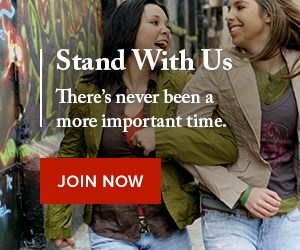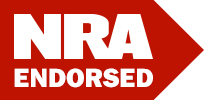In an astonishing and rare procedural shift, the U.S. Supreme Court declined to produce an expected narrow decision on a critical First Amendment case before its last term ended. Instead, the court deferred its ruling and ordered a new hearing--calling for the case to be re-argued under a vastly broadened scope--scheduled for September, even before its new term begins.
The court's deliberations in Citizens United v. Federal Election Commission could well result in restoration of First Amendment liberty lost to the George Soros-backed "campaign reform" law enacted by Congress in 2002. That noxious law bans and criminalizes spending by non-profit corporate groups like the NRA for pre-election broadcasts to support or defeat candidates or to even mention a federal office-holder in the context of issue-driven advertisements.
Most remarkably, in extending its purview, the court asked the parties in the case to look beyond the challenged broadcast ban sections of the Bipartisan Campaign Reform Act (BCRA) and address the constitutionality of the very concept of laws criminalizing the use of corporate funds to pay for political speech in any venue and form.
In asking that BCRA be declared unconstitutional, the NRA's friend-of-the-court brief explains: "For like-minded individuals lacking great wealth, pooling their donations to fund a political message is, in a real sense, the only way for them to find meaningful voice in the marketplace of ideas. There is nothing pernicious, problematic or distorting about individuals banding together in this fashion to express shared political values and make themselves heard."
A Supreme Court ruling restoring First Amendment rights in the Citizens United case will free the NRA to exercise our fullest voice in crucial elections in the future.
This remarkable challenge involves government censorship of an unflattering documentary of then-presidential candidate Hillary Clinton's career and voting record. It was produced by Citizens United, a Virginia-based grassroots non-profit corporation with the same legal status under IRS regulations as the NRA. Titled "Hillary: the Movie," the 90-minute film was to be aired via pay-per-view broadcast channels.
Claiming that the film and broadcast ads for the movie in theaters criminally violated federal pre-election blackout bans on "electioneering communications," the FEC threatened legal reprisals and demanded that Citizens United disclose its donors. In response, Citizens United filed a challenge to the law as unconstitutional.
Under BCRA, it is a crime for non-profit corporations like Citizens United or the NRA to pay for any broadcast material that even obliquely mentions a candidate for federal office that airs 30 days before a primary election and 60 days before a general election.
The law also severely limits both the sources of funds for groups like the NRA and expenditures for influencing how people vote. When the so-called "reform" legislation was debated in Congress, the NRA was the target with a key anti-free speech lobbyist declaring, "A vote for campaign finance reform is a vote against the Second Amendment gun lobby."
Repeatedly, we heard the same from gun-ban politicians like Illinois U.S. Rep. Jan Schakowsky, who sputtered: "If my colleagues care about gun control, then campaign finance reform is their issue ...".
When the law's constitutionality was challenged by U.S. Sen. Mitch McConnell, the NRA was a key participant. But given the makeup of the court then, the government muzzle was sanctioned and the challenge quashed.
Thanks to President George W. Bush's appointment of Chief Justice John G. Roberts and Associate Justice Samuel Alito, that unconscionable decision may well be overturned in Citizens United.
Political speech is about money. Under BCRA, obtaining contributions and spending on political broadcast speech is a virtual monopoly for politicians, maintained through harsh restrictions on funding for political outreach for everybody else.
As our attorneys informed the court, under the law we are helping to challenge, "Effective use of broad-based Internet, television, and direct-mail solicitations. . . are all out of bounds for anyone but the candidates themselves."
When Citizens United was first argued before the Supreme Court in March 2009, the Obama administration shocked the justices by asserting new dictatorial powers to criminalize other forms of political speech like assuming power to ban signs, DVDs, books and postings on the Internet.
As reported by Lyle Denniston on scotusblog.com:
"When the argument turned to such First Amendment horrors as banning books, banning Internet expression ... the members of the court seemed instantly to recoil from the sweep of arguments made by Deputy Solicitor Malcolm L. Stewart."
I suspect that the court's alarm about the blithe assumption of such stark powers over free speech by the Obama administration is what broadened the high court's constitutional inquiry to cover virtually the whole of federal campaign finance law. A casual vision of government as book burner was a huge and perhaps providential admission by the Obama legal crowd.
That kind of arrogant disregard for the free speech of Americans is something the NRA will stand against just as we stand against the erosion of the Second Amendment liberty of all Americans. In the end, each right exists to protect the other.












